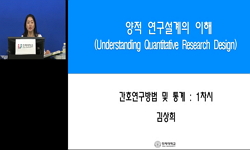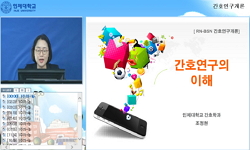With the turn to the 21st century, online schools focusing on teaching and learning process have received a great deal of attention in terms of online learning communities. In this light, based on an ethnographic perspective, this study was designed t...
http://chineseinput.net/에서 pinyin(병음)방식으로 중국어를 변환할 수 있습니다.
변환된 중국어를 복사하여 사용하시면 됩니다.
- 中文 을 입력하시려면 zhongwen을 입력하시고 space를누르시면됩니다.
- 北京 을 입력하시려면 beijing을 입력하시고 space를 누르시면 됩니다.

온라인 학교 학생들의 합법적인 주변참여에서 완전한 참여로의 과정에 관한 사례연구 = A Study of the Process by Which Online School Students Move From Legitimate Peripheral Participants to Full Participants
한글로보기https://www.riss.kr/link?id=A101959645
- 저자
- 발행기관
- 학술지명
- 권호사항
-
발행연도
2006
-
작성언어
-
- 주제어
-
KDC
300
-
등재정보
KCI등재
-
자료형태
학술저널
- 발행기관 URL
-
수록면
57-93(37쪽)
-
KCI 피인용횟수
7
- 제공처
- 소장기관
-
0
상세조회 -
0
다운로드
부가정보
다국어 초록 (Multilingual Abstract)
With the turn to the 21st century, online schools focusing on teaching and learning process have received a great deal of attention in terms of online learning communities. In this light, based on an ethnographic perspective, this study was designed to explore how online school students become part of an online learning community through legitimate peripheral participation in the community of practice. A qualitative research in cyberspace was conducted in an online school over four and half months. My participants were sixteen 8th grade students and four 8th grade teachers. Participant observation, interviews, and document analysis were conducted for data collection. Using an inductive analytical approach, qualitative data analysis software, NUD*IST Version 6, was employed for data analysis. The first finding of the study is that when my participants entered OVS as novices, a majority of them were worried or uncomfortable whereas some of them were excited about learning with technology at OVS. The second finding is that my participants frequently went to the OVS school system even though they did not need to do, sent their teachers emails, or made friends in order to make them comfortable in the OVS system. The third one is that while many of my participants explored the OVS school system by themselves, some of them had interactions with their family member, neighbor, or the OVS teachers. In conclusion, even though OVS is a school to which teachers, students, and administrators belong, interestingly, OVS had a weak community of practice. This finding seems to be related with OVS school system focusing on individualized learning and OVS students` expectation of the school that they do not need to have social interactions with other students. This study not only suggests that online schools need to a cyber place to facilitate students` social interactions, but raises a future research question: what should or can online schools` roles be?
참고문헌 (Reference)
1 "Virtual schools: Trends and issues. Report commissioned by the Distance Learning Resource Network" Western Illinois University 2001October
2 "Virtual schooling:Legislative update" 25 (25): 20-25, 2005
3 "Virtual schooling:Going the distance -any distance - to school" 18 (18): 30-41, 1998
4 "Virtual ethnography" SAGE Publications 2000
5 "Travel or tourism? Educational Technology" 27-32, 1993
6 "Toward a new golden age in American education: How the Internet, the law and today’s students are revolutionizing expectations" 2004
7 "Three epistemological stances for qualitative inquiry: Interpretivism, hermeneutics, and social constructionism." SAGE Publications, Inc. 2000
8 "Thinking and learning in social context" Harvard University Press 1984
9 "The relationship between situated cognition and anchored instruction A response to Tripp" 28-32, 1994
10 "The interpretation of documents and material culture" SAGE Publications, Inc. 2000
1 "Virtual schools: Trends and issues. Report commissioned by the Distance Learning Resource Network" Western Illinois University 2001October
2 "Virtual schooling:Legislative update" 25 (25): 20-25, 2005
3 "Virtual schooling:Going the distance -any distance - to school" 18 (18): 30-41, 1998
4 "Virtual ethnography" SAGE Publications 2000
5 "Travel or tourism? Educational Technology" 27-32, 1993
6 "Toward a new golden age in American education: How the Internet, the law and today’s students are revolutionizing expectations" 2004
7 "Three epistemological stances for qualitative inquiry: Interpretivism, hermeneutics, and social constructionism." SAGE Publications, Inc. 2000
8 "Thinking and learning in social context" Harvard University Press 1984
9 "The relationship between situated cognition and anchored instruction A response to Tripp" 28-32, 1994
10 "The interpretation of documents and material culture" SAGE Publications, Inc. 2000
11 "The ethnography of an electronic bar" 24 (24): 270-298, 1995
12 "The culture of acquisition and the practice of understanding Essays on comparative and human development" Cambridge University Press 1990
13 "Sketchy grades for cyber schools" 2004March
14 "Situated cognition and the culture of learning" 32-42, 1989
15 "Situated Learning and Classroom Instruction" 33 (33): 46-51, 1993
16 "Situated Cognition, Vygotskian Thought and Learning from the Communities of Practice Perspective: Implications for the Design of Web-based E-Learning." 38 (38): 3-12, 2001
17 "Rethinking observation: From method to context" SAGE Publications, Inc. 2000
18 "Qualitative methods in research on teaching Handbook of research on teaching" Macmillan 1986
19 "Preparing teachers for the "schools that technology built": evaluation of a program to train teachers fro virtual schooling" 37 (37): 399-409, 2005
20 "Online learning and virtual schools" 21 (21): 29-35, 2005
21 "Life online:Researching real experience in virtual space" AltaMira Press 1998
22 "Life on the screen:Identity in the age of the internet" Touchstone Press 1995
23 "Learning with technology" 91 (91): 85-88, 2002
24 "Learning networks" MIT Press 1996
25 "Internet communication and qualitative research: A handbook for researching online." SAGE Publications 2000
26 "How can virtual schools be a vibrant part of meeting the choice provisions of the no child left behind act?" 2004
27 "Homesteading on the electronic frontier" 1993
28 "From the practice to culture on Usenet." Blackwell Publishers 1995
29 "E-learning:Strategies for delivering knowledge in the digital age" McGrew-Hill 2001
30 "Do we really need an online discussion group?" Kogan Page. 2001
31 "Distance education courses for public elementary" National Center for Education Statistics. 2005
32 "Design Principles for Web-based Learning:Implications from Vygotskian Thought" 41 (41): 33-41, 2001
33 "Communities of practice: Learning, meaning, and identity" Cambridge University Press 1998
34 "Building learning communities in cyberspace: Effective strategies for the online classroom." Jossey-Bass 1999
35 "Apprenticeship in thinking" Oxford University Press 1990
36 "An introduction to cybercultures" Routledge 2001
37 "A new kind of school" 189 (189): 40-44, 2002
38 "(Re)Writing the word: Methodological strategies and issues in qualitative research." 43 (43): 461-473, 2002
동일학술지(권/호) 다른 논문
-
웹기반 팀 학습환경에서 성격유형에 의한 팀 구성방식이 팀 과제수행력, 팀워크, 상호작용에 미치는 영향
- 한국교육공학회
- 이영민 ( Youngmin Lee )
- 2006
- KCI등재
-
CSCL에서 WOE의 유형이 지식 공유 과정에 미치는 영향
- 한국교육공학회
- 정효정 ( Hyojung Jung )
- 2006
- KCI등재
-
우연적 발견 능력(serendipity)의 신장을 위한 교수-학습 방안
- 한국교육공학회
- 강이철 ( Echeol Kang )
- 2006
- KCI등재
-
- 한국교육공학회
- 박인우 ( Innwoo Park )
- 2006
- KCI등재
분석정보
인용정보 인용지수 설명보기
학술지 이력
| 연월일 | 이력구분 | 이력상세 | 등재구분 |
|---|---|---|---|
| 2027 | 평가예정 | 재인증평가 신청대상 (재인증) | |
| 2021-01-01 | 평가 | 등재학술지 유지 (재인증) |  |
| 2018-01-01 | 평가 | 등재학술지 유지 (등재유지) |  |
| 2015-01-01 | 평가 | 등재학술지 유지 (등재유지) |  |
| 2011-01-01 | 평가 | 등재학술지 유지 (등재유지) |  |
| 2009-01-01 | 평가 | 등재학술지 유지 (등재유지) |  |
| 2007-01-01 | 평가 | 등재학술지 유지 (등재유지) |  |
| 2004-01-01 | 평가 | 등재학술지 선정 (등재후보2차) |  |
| 2003-01-01 | 평가 | 등재후보 1차 PASS (등재후보1차) |  |
| 2002-01-01 | 평가 | 등재후보 1차 FAIL (등재후보1차) |  |
| 1999-07-01 | 평가 | 등재후보학술지 선정 (신규평가) |  |
학술지 인용정보
| 기준연도 | WOS-KCI 통합IF(2년) | KCIF(2년) | KCIF(3년) |
|---|---|---|---|
| 2016 | 3.7 | 3.7 | 3.26 |
| KCIF(4년) | KCIF(5년) | 중심성지수(3년) | 즉시성지수 |
| 2.89 | 2.68 | 3.751 | 0.75 |




 RISS
RISS KISS
KISS







